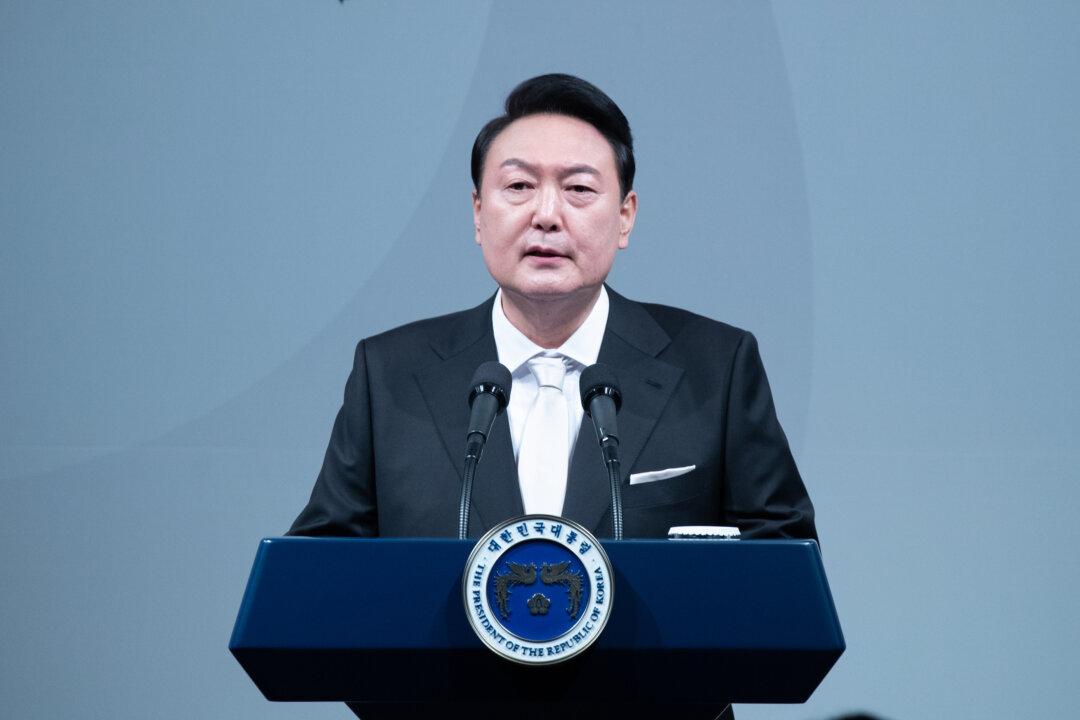South Korea’s president has laid out the details of what he called an “audacious plan” to improve North Korea’s economy in exchange for complete denuclearization and “sustainable peace” in the Korean Peninsula.
Speaking at a ceremony commemorating South Korea’s independence from Japanese 1910–45 colonial rule, President Yoon Suk-yeol called on Pyongyang to embark on “a genuine and substantive process for denuclearization.”





